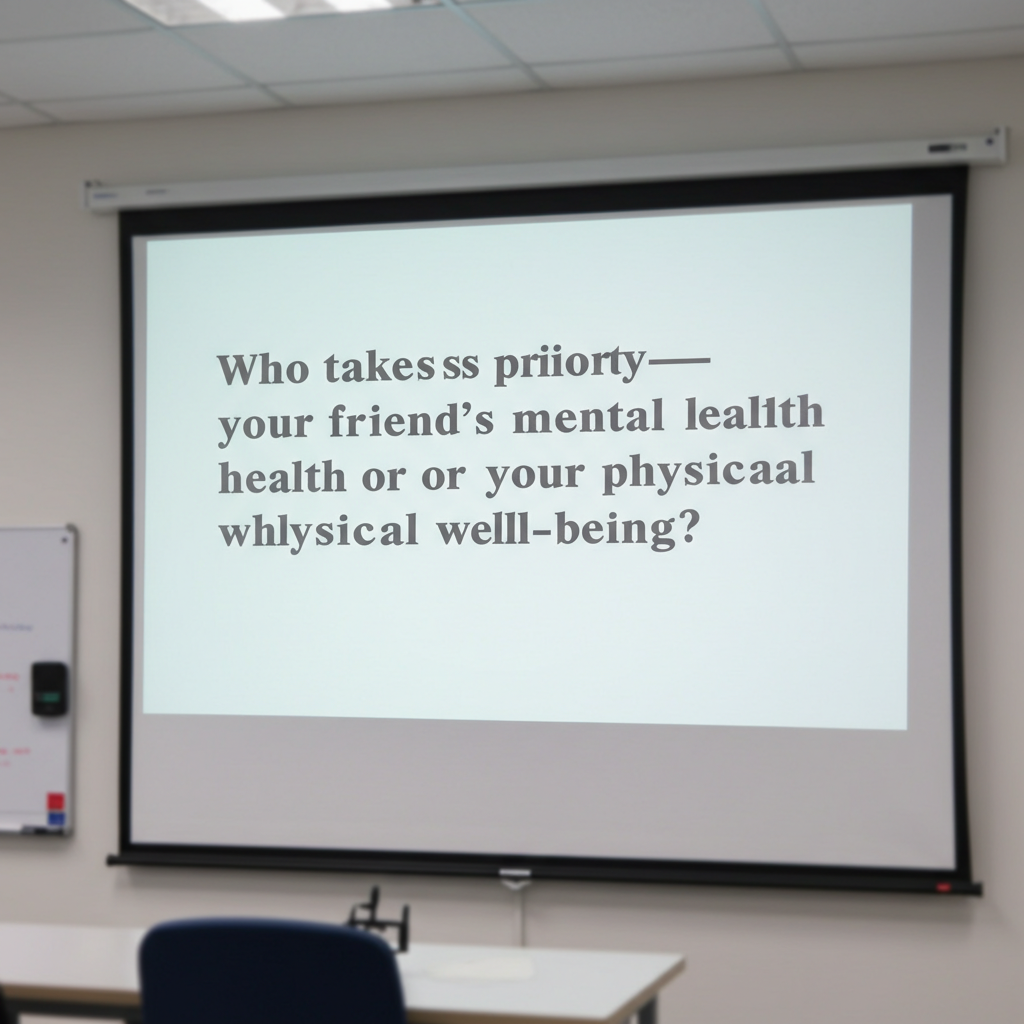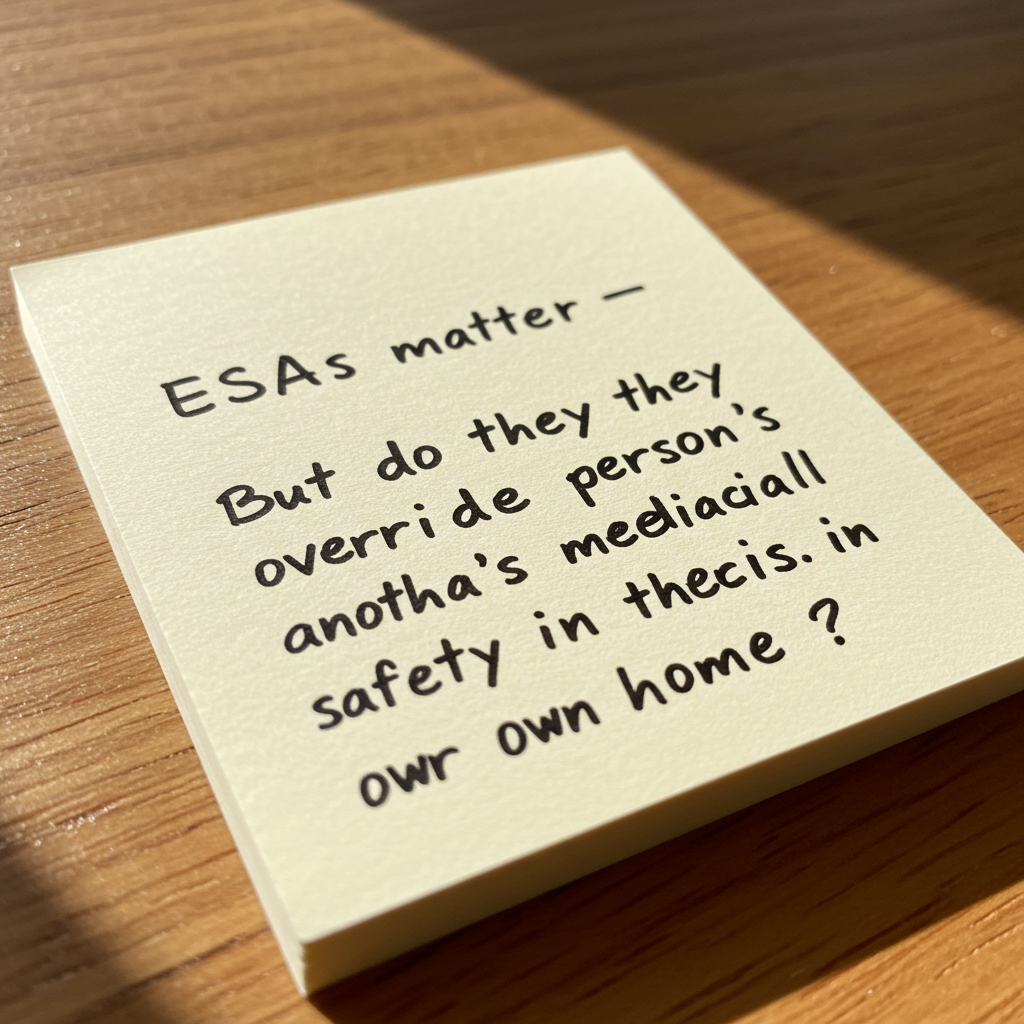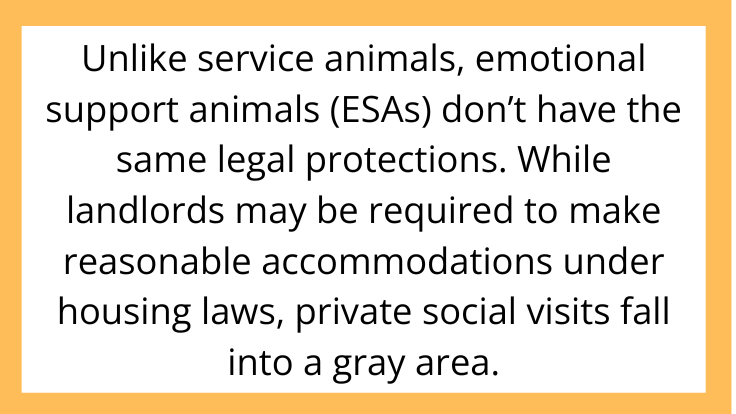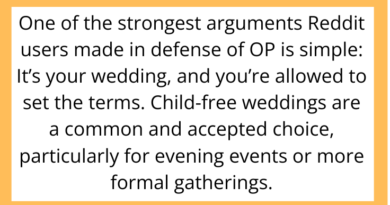AITAH for Not Letting My Best Friend Bring Her Emotional Support Dog to My Apartment?
When it comes to friendships, boundaries can get blurry—especially when emotional needs collide with personal comfort. In today’s AITAH scenario, a seemingly small disagreement over a dog opens the door to a much deeper conflict between two longtime friends. Is standing your ground selfish, or is it self-care?
The Story: Best Friends and Boundaries

A 27-year-old woman—let’s call her Anya—turned to Reddit’s r/AITAH community with a personal dilemma involving her best friend, Jasmine. The two had been inseparable since college. Anya lives alone in a small apartment and describes herself as highly allergic to most animals, especially dogs.
Recently, Jasmine got an emotional support dog to help her cope with anxiety and panic attacks. The dog, a medium-sized golden retriever named Max, has helped Jasmine feel more stable and confident in her daily life.
Things were going smoothly—until Jasmine asked to bring Max over during their weekly girls’ night at Anya’s apartment.
The Problem: Allergies and Expectations

Anya gently declined, explaining that she was extremely allergic to dogs and didn’t want to trigger a reaction in her own home. She offered to hang out elsewhere—at Jasmine’s place, a park, or a café—but stood firm on her rule: no dogs in her apartment.
Jasmine didn’t take it well.
She said Anya was being dismissive of her mental health needs and acting as though Max was just a pet instead of a support animal. “It’s not like I want to bring him,” Jasmine said. “I need to.”
Anya reiterated her allergy and reminded Jasmine that it’s not about the dog—it’s about her physical health. But Jasmine cut the conversation short and hasn’t spoken to her since.
Feeling confused and a little guilty, Anya turned to Reddit to ask: AITAH for not letting my best friend bring her emotional support dog to my apartment?
Mental Health vs. Physical Health: Who Takes Priority?

Why Anya May Not Be the Villain
Anya has a legitimate health concern. Dog allergies aren’t just about sneezing—they can include difficulty breathing, rashes, and even asthma attacks. Asking someone to expose themselves to allergens in their own home is a major ask, especially when there are alternative options.
She wasn’t banning Jasmine or dismissing her struggles—she was simply maintaining a boundary that allowed her to stay healthy.
Why Jasmine Might Feel Hurt
To Jasmine, Max isn’t just a dog—he’s a lifeline. Emotional support animals are prescribed to help individuals manage serious mental health conditions. In her mind, Max is part of the package. Being told he’s not welcome might feel like she’s not welcome either.
She may also feel that her invisible illness is being treated as less important than Anya’s visible symptoms.
Reddit Weighs In: Split Opinions

The AITAH subreddit gave a variety of responses, reflecting the complexity of the situation.
“NTA,” one top comment read. “You’re allergic. Period. You’re not saying she can’t bring the dog anywhere—just not inside your home. That’s reasonable.”
Others urged understanding. “NAH,” another user posted. “She’s valid in needing her dog, and you’re valid in protecting your health. But maybe both of you need to talk more openly about how this changes the dynamic.”
A few people questioned Jasmine’s reaction. “Cutting you off over this feels extreme. Friendships should have room for compromise.”
Emotional Support Animals: Understanding the Legal and Social Context
Unlike service animals, emotional support animals (ESAs) don’t have the same legal protections. While landlords may be required to make reasonable accommodations under housing laws, private social visits fall into a gray area.
That said, the growing visibility of mental health needs has sparked broader conversations about how society makes space for invisible disabilities—and how to balance them against other needs.
Could This Have Been Handled Differently?

For Anya:
-
Acknowledge Jasmine’s feelings more openly and validate her reliance on Max.
-
Offer additional ways to stay connected, like video calls or regular meetups at dog-friendly locations.
For Jasmine:
-
Understand that emotional support animals, while essential, can’t override someone else’s medical needs.
-
Open a dialogue instead of shutting down communication.
A Friendship Tested

At the heart of this AITAH post is a question that goes beyond dogs or allergies: How do we maintain close relationships when our needs are in conflict?
Both women are navigating valid challenges—mental health, physical health, and the space where personal comfort meets social responsibility. The answer isn’t always clear-cut, but empathy and communication go a long way.



